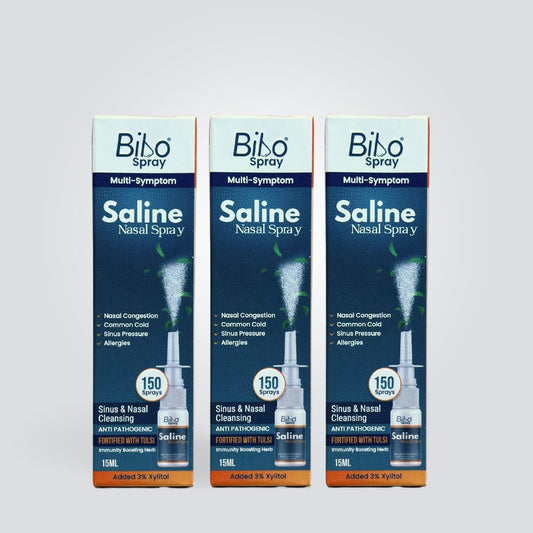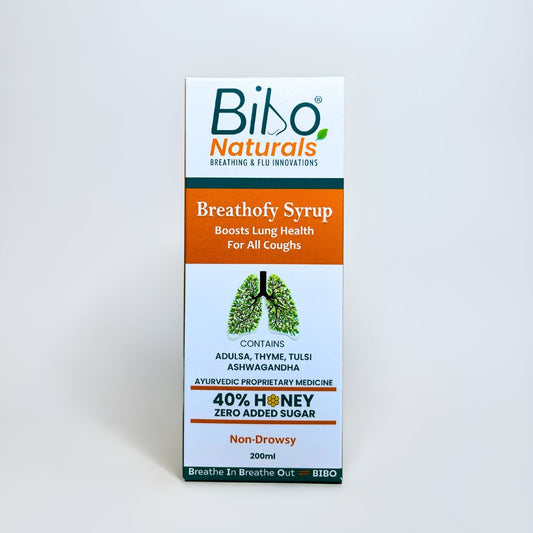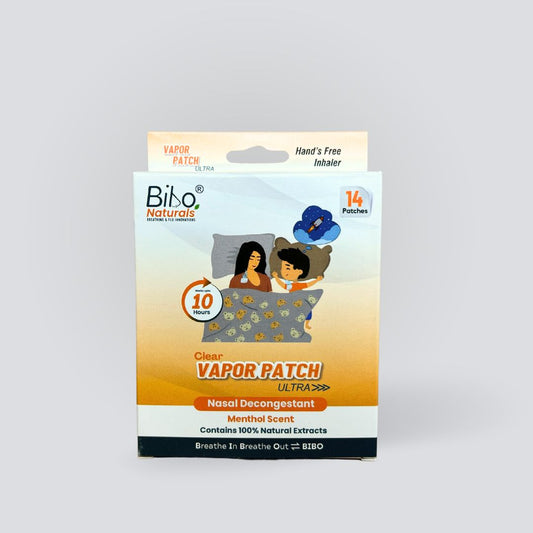Written by: DHRITHI BHAT
Monsoon season can be tough for those who suffer from allergies and asthma. The presence of allergens in the air, increased humidity, and moisture can all cause respiratory problems and aggravate pre-existing diseases. However, people can lessen the effects of allergies and asthma during this time by using effective management techniques. In this blog, we'll discuss practical tips for surviving the monsoon season while maintaining your health that are based on research studies.
Understanding Allergies and Asthma:
Millions of individuals throughout the world suffer from allergies and asthma, both of which are chronic respiratory diseases. When the immune system reacts to environmental triggers like pollen, dust mites, or mould spores, allergies develop. Asthma, on the other hand, causes episodes of wheezing, coughing, and shortness of breath since it is a chronic inflammation of the airways. Environmental components, such as allergens, have the potential to cause either disorder or make it worse.
Managing Allergies and Asthma During Monsoon Season:
Indoor Allergens:
Due to the intense rain during the monsoon season, spending more time inside becomes necessary. Dust mites, mould, and pet dander are examples of indoor allergens that can cause allergic reactions and asthma symptoms. To reduce exposure to these allergens, follow these strategies:
- Regular Cleaning: According to research, a consistent cleaning schedule can considerably minimize indoor allergies. Dust mites and associated allergens can be successfully eliminated by vacuuming carpets and upholstery using a high-efficiency particulate air (HEPA) filter. Furthermore, dusting with moist cloths might aid in clearing surfaces of allergies.
- Mold Prevention: he monsoon season's increased humidity and dampness can encourage the formation of mould, a common allergen. According to research, it's crucial to maintain indoor rooms dry and well-ventilated in order to prevent mould. Dehumidifiers should be used in wet places like bathrooms and basements. To reduce the growth of mould, rapidly fix any leaks or water seepage.
- Pet Management: Pet dander is a significant allergen that can cause allergic reactions, according to research. If you have dogs, make sure to frequently brush and bathe them to reduce dander. Establish pet-free areas in the home, such as bedrooms, to decrease exposure to allergens while you sleep.
Air Quality Management:
For people with allergies and asthma, maintaining excellent indoor air quality is essential. Here are some measures to improve air quality during the monsoon season:
- Air Purification: According to research, allergens and pollutants in the air can be successfully removed by employing air purifiers with HEPA filters. Place them in locations that are regularly used, including bedrooms and living rooms, to create cleaner air. It's crucial to remember, though, that air purifiers shouldn't take the place of adequate ventilation.
- Ventilation: Reduced wetness and the prevention of indoor pollution buildup are two benefits of proper ventilation. According to research, allowing fresh air to circulate inside the home by opening windows and doors when the weather allows can assist improve indoor air quality. To prevent insects and allergens from entering your home, utilise window screens.
Personal Protection:
Taking personal precautions can significantly reduce exposure to allergens and pollutants. Consider the following strategies:
- Wear Protective Gear: Wearing protective clothing, such as face masks, while outdoors during the monsoon season might help minimise inhalation of allergens and pollutants. According to research, using a mask that filters out tiny particles can help lessen respiratory problems.
- Monitor Pollen Count: A frequent allergen that can cause allergic responses is plant pollen. According to research, keeping an eye on the pollen levels in your neighbourhood and scheduling outside activities accordingly can help reduce exposure. Spend as little time outside as possible in the early morning and late afternoon when pollen concentrations are at their highest.
Medication Management:
Proper administration of medication is necessary for people with allergies and asthma to manage their symptoms throughout the monsoon season. Here are some key considerations:
- Consult with a Healthcare Professional: According to research, regular interaction with medical professionals is essential for managing allergies and asthma effectively. Visit your doctor to discuss a treatment strategy that will work for your situation. Based on your symptoms and triggers, they could advise making changes to your prescription regimen.
- Carry Emergency Medication: Prescribed emergency medications, such as inhalers or antihistamines, should always be on hand, especially when engaging in outdoor activities or traveling. According to research, having emergency medication on hand can assist treat acute respiratory problems.
- Allergy Immunotherapy: For people with severe allergies, allergy immunotherapy, also referred to as allergy shots, is a treatment option that can offer long-term relief. According to research, allergy immunotherapy administered under a doctor's supervision may lessen symptoms and lower sensitivity to allergens.
During this difficult period, people can lessen the burden of allergies and asthma by putting methods into practice, such as controlling indoor allergens, increasing air quality, adopting personal measures, and properly managing medications.
Don’t forget to seek individualized counsel and direction from healthcare specialists for personalized advice and guidance for your requirement. You may enjoy the monsoon season while maintaining good respiratory health if you use the appropriate strategy.
Reference:
- Ganesh Kumar, S., et al. "Prevalence and factors associated with asthma among school children in rural Puducherry, India." Sleep1 (2012):
- https://www.narayanahealth.org/blog/tips-to-manage-asthma-during-monsoon/
- https://doctor.ndtv.com/living-healthy/ways-to-manage-respiratory-allergies-during-monsoon-2273435
- https://indianexpress.com/article/lifestyle/health/suffering-from-monsoon-allergies-heres-what-you-can-do-5856439/




